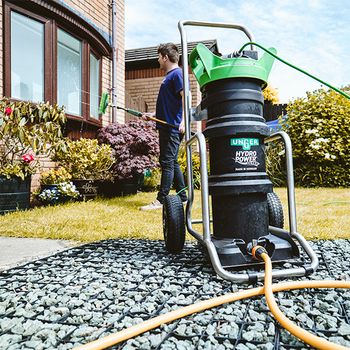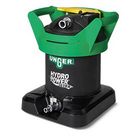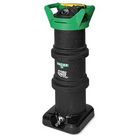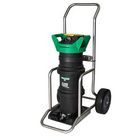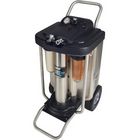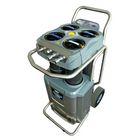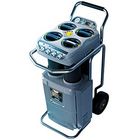There is always a first time – including for window cleaning with pure water. And, like everything new, you have to get used to it. However, even experienced window cleaners sometimes find that the pane is not properly clean after a job. What could be the reason? We want our customers to get the best possible results when cleaning windows with pure water by using the system correctly right from the start. For this reason, we have compiled guidelines containing the 16 most common sources of error when cleaning with pure water, which may explain any unsatisfactory cleaning results. For most problems, there is a specific cause that can be quickly eliminated – provided you know what it is!
1. Lack of preparation!
Before the pure water system can even be used, dirt and dust must be removed from the glass surface and it must be carefully rinsed.
2. Excessive surfactant residue!
If a window was previously cleaned using a window squeegee and washer, up to three cleaning processes with pure water are required before the traces of the previous traditional procedure, the surfactants, are completely removed from the glass pane.
3. Not enough water!
When cleaning windows with a pure water system, always use enough water. It is best spread over a large area of the glass pane to create a light film. Regular and thorough rinsing with fresh, pure water is also part of every window cleaning process.
4. TDS value of the water too high!
Pure water used for cleaning glass should not exceed a value of 10 ppm. Replace the resin before this value is exceeded. The integrated TDS meter provides information about the current value.
5. Defective seals and joints!
So-called “snags” that appear on the glass after cleaning can indicate broken silicone joints or rubber seals. As soon as these leak, the water flushes dirt out of them, which then runs down the pane and dries there.
6. Wrong movement!
The brush is used to clean in V-movements starting from the top floor and going down to the ground floor, not vice versa. If you start at the bottom, you will push the dirt up.
7. Wrong order!
When cleaning a window facade, the frames are the first thing on the agenda, not the glass surfaces. The reason is simple: dirt tends to collect in the joints and gaps. To ensure that this does not run over the cleaned panes during the final rinse with pure water, the sequence should always be: first the frames, then the glass!
8. Coated plastic frames!
Be careful with painted window frames where the coating is already cracked and can flake off.
9. Coated wooden frames!
Care should be taken with windows with varnished or oiled wooden frames because cleaning can remove both oils and tanning agents from the wood protection and spread them onto the glass surfaces.
10. Dirty brush!
For the surface to shine flawlessly, the brush must be spotlessly clean.
11. Bonded or coated windows!
Not all brushes are suitable for windows that have been bonded or coated on the outside. If in doubt, first check on a test surface whether the coating is suitable for brushes so that it does not get damaged.
12. Wrong water!
Tap water is always preferable to well water because it is always of a very high quality. This is not the case with well water. It can contain dirt particles that attack the pure water filter and put so much strain on it that it wears out more quickly.
13. Oil-based dirt!
Very greasy glass panes with fatty and oily stains make cleaning with pure water more difficult and require more effort.
14. Acrylic glass with soft surface!
Plastic glass has the disadvantage that its surface often becomes statically charged. This effectively attracts dirt and causes it to stick. Since acrylic is also a relatively soft material, scratches can easily occur. While using plenty of pure water and a soft-bristled brush can reduce the likelihood of this, the client should also be made aware of this additional risk.
15. Cleaning after completion of construction!
Dust particles, sand, paint, mortar and the like can get stuck on panes of glass and easily scratch them. Cleaning after construction should therefore not be attempted with pure water and a brush.
16. Uncertainty or lack of experience!
Good advice is not expensive: if you have any problems or questions, your personal specialist dealer and the UNGER sales department will be happy to help you with free advice.
One last tip for perfect results: good things come to those who wait. Working with pure water should never be done hastily and always carried out thoroughly. So where are the promised time savings? Professionals will notice them right away when cleaning with pure water.
If you take the above points into account and work thoroughly, it is very likely that you will always be able to enjoy sparkling clean windows without any streaks, stains or “snags”. This fact is also confirmed by our numerous satisfied customers who have switched from classic window cleaning to the UNGER pure water cleaning system.

